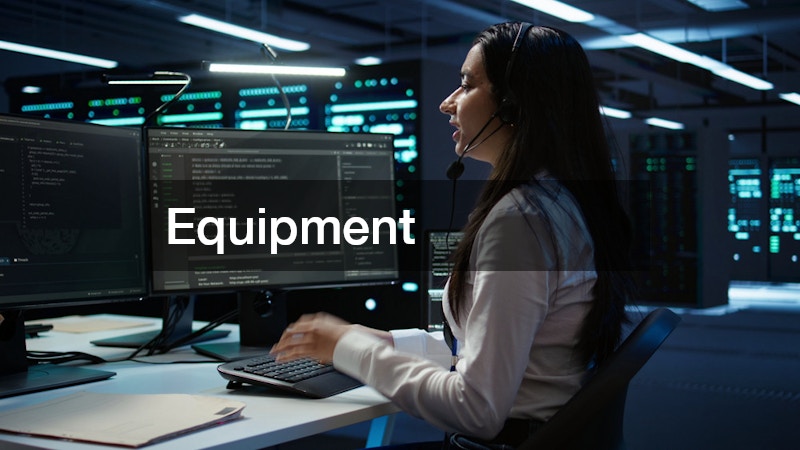How Businesses Benefit From Strong Physical Investments
Investing in a business involves much more than simply contributing financial capital; it requires making a series of deliberate, calculated decisions that foster sustainable growth, operational stability, and long-term profitability. While monetary investment lays the foundation, it is the strategic allocation of resources into physical assets that often defines a company’s ability to compete and thrive in the marketplace. Physical investment refers to the tangible assets used in daily operations—equipment, vehicles, tools, property, and technology—that directly influence efficiency, productivity, and service quality.
These assets are not just functional necessities; they are the backbone of a business’s operational capacity. For instance, modern machinery in an asphalt business can dramatically improve output and ensure projects are completed to higher safety and quality standards. Similarly, in a local moving company, trucks, packing equipment, and skilled employees form the core infrastructure needed to deliver reliable, customer-focused service. Each decision to invest in physical resources is therefore a step toward building credibility, improving customer satisfaction, and creating a competitive edge.
Understanding the significance of physical investments is crucial for any business owner seeking lasting success. They represent more than immediate expenses—they are long-term commitments that strengthen resilience, reduce inefficiencies, and position a company for growth. By recognising the pivotal role of these tangible assets and strategically planning when and how to invest in them, business owners can set a solid foundation for scalability and profitability in highly competitive industries. As you read on, you will discover a few of the various physical investments businesses can make to strengthen their company over time.
Equipment

For any asphalt business, the right equipment forms the backbone of operations. From asphalt pavers to milling machines, each piece of machinery represents a significant physical investment. Without these essential tools, the quality of work could suffer, potentially harming both reputation and revenue.
Investing in high-quality equipment ensures that your asphalt business not only meets industry standards but exceeds them. This can translate to more contracts and higher client satisfaction. Both are critical components in building a sustainable market presence.
Moreover, the life span of your equipment can directly affect your bottom line. Regular maintenance and timely upgrades can extend functionality, allowing you to get the most from each physical investment. This component is particularly essential in providing a competitive edge.
In addition, equipment choices can influence efficiency, environmental impact, and workforce safety. Modern machinery with advanced technology often reduces fuel consumption, minimises emissions, and enhances precision, all while helping crews complete jobs faster and with fewer risks. By aligning equipment investments with both operational and environmental goals, asphalt businesses can position themselves as responsible industry leaders while maximising productivity.
Training
The importance of training within the water restoration business cannot be overstated. Professional development programs can be seen as a form of physical investment by enhancing the skill set of your workforce. Well-trained employees are more efficient, which in turn leads to enhanced service delivery.
Additionally, continuous training helps keep your staff updated on the latest industry practices and standards. This not only ensures compliance with regulations but also prepares your business to tackle new challenges. Training equips your team to provide high-quality service, increasing both client trust and brand reliability.
The return on investment in training is immeasurable in terms of the safety and effectiveness it brings. In the water restoration business, well-versed employees are better prepared to handle emergencies, mitigating potential damages and increasing customer satisfaction.
Beyond compliance and technical skills, training also fosters employee confidence and morale. A workforce that feels competent and supported is more likely to take initiative, solve problems effectively, and remain loyal to the company. This reduces turnover while building a strong internal culture, ensuring that your business not only grows but also sustains long-term success.
Marketing
In the well drilling business, effective marketing is a vital component of physical investment. Keeping your branding visible ensures a consistent client base and attracts potential new customers. Without a well-devised marketing strategy, even the best services can go unnoticed.
Digital and traditional marketing efforts can coalesce to give a well-rounded promotion that reaches diverse audiences. By utilising both online platforms and community involvement, you ensure a well drilling business gains necessary exposure. This dual approach can maximize your return on physical investment by driving client engagement.
Through consistent marketing efforts, such as informative campaigns and customer loyalty programs, you further establish your credibility. Effective marketing turns the intangible leads into tangible outcomes like contracts and revenue, making it a worthwhile physical investment.
Bookkeeping

Proper bookkeeping is fundamental for managing a successful gutter business. Physical investment in financial software and accounting services can be a game-changer. Proper financial management allows for accurate forecasting, which plays a critical role in strategic growth planning.
The data obtained through diligent bookkeeping can offer insights that guide crucial business decisions. When you know precisely where your money is going, you can make more informed choices about where to focus further physical investments. This transparency is particularly valuable in budgeting and managing cash flows.
Physical investment in bookkeeping also protects you against legal challenges. Accurate records ensure compliance with tax laws and can fend off financial discrepancies that might occur. It’s a layer of protection that saves time, energy, and resources in the long run.
Building
For an appliance repair business, investing in a reliable and efficient workspace can have substantial implications on productivity and revenue. Owning or leasing a functional building is a considerable physical investment that impacts storage, repair quality, and workflow efficiency.
The layout and facilities of your workspace play a crucial role in operational success. A well-organized building improves efficiency and reduces downtime, making the repair process faster, which results in satisfied customers. This satisfaction translates into better reviews and more repeat business.
Moreover, a well-maintained building reflects professionalism and reliability. Clients are more likely to trust businesses that operate out of clean and modern facilities, thereby increasing customer retention and business growth.
Supplies
Maintaining a constant supply chain is integral to a garage door business. Inventory management and the procurement of quality supplies form a key part of your physical investment strategy. Without it, fulfilling client orders could be significantly delayed, affecting your bottom line.
Your physical investment extends to ensuring you have a diversified and reliable list of suppliers. This diversification minimizes the risk of stock shortages and operational downtimes. In turn, a well-maintained inventory supports your reputation for reliability and prompt service delivery.
Furthermore, investing in quality supplies impacts the longevity and durability of garage doors installed. With a reputation for durable installations, you gain customer loyalty, which is invaluable in a competitive market.
Software

In a fleet maintenance company, software solutions serve as a vital physical investment. Efficient management software streamlines scheduling, facilitates communication, and aids in device tracking. This directly enhances operations and increases overall productivity.
Utilizing the right software allows for the seamless coordination between different teams, leading to reduced delays and improved service delivery. The investment made in quality software translates into smoother workflow and client management. This is particularly crucial when managing large numbers of vehicles.
Furthermore, software solutions help in data analysis, forecasting trends, and automating tasks that require precision and accuracy. By investing in comprehensive management software, businesses can leverage technology to maximize their physical investment returns efficiently.
Technology
For a crane rental business, staying up-to-date with the latest technology is not just a convenience but a fundamental physical investment that determines long-term success. Modern cranes equipped with advanced lifting capabilities, GPS tracking systems, and automation features can drastically improve efficiency in operations that are often time-sensitive and safety-critical. With the right technology, scheduling becomes more accurate, downtime is reduced, and overall productivity increases.
Embracing technological upgrades also improves safety measures, which is non-negotiable in an industry that deals with heavy and complex machinery. Innovations such as load monitoring systems, anti-collision sensors, and telematics ensure that equipment is being used responsibly and with minimal risk, protecting both employees and clients on the worksite. These enhancements help establish a reputation for reliability and professionalism, which is a powerful draw for contractors seeking dependable partners.
Beyond efficiency and safety, technology adoption sets your business apart in a competitive market. Tech-savvy operations are viewed as more forward-thinking and capable, which can be a deciding factor for clients choosing between providers. This differentiation not only helps secure more contracts but also builds long-term loyalty among repeat clients. Ultimately, investment in technology is an essential part of modernising your crane rental business, ensuring continued relevance in a rapidly advancing industry and providing the tools needed for growth and stability.
Furthermore, leveraging advanced systems allows for better data management, predictive maintenance, and real-time communication across projects. These capabilities minimise costly downtime, improve client transparency, and enhance overall project coordination. By positioning your business at the forefront of innovation, you not only strengthen current operations but also future-proof your company against industry shifts, creating lasting resilience and a reputation for reliability.
Employees
Hiring and retaining skilled employees is one of the most valuable investments a local moving company can make, often proving to be just as important as trucks, equipment, or inventory. Employees are the face of the business, directly influencing customer satisfaction and the overall perception of service quality. A team of trained and motivated workers ensures that moves are completed efficiently, safely, and with care, which is critical in an industry built on trust and reputation.
The recruitment of experienced employees streamlines operations by reducing errors and delays, while also improving the client experience. Customers remember when movers are professional, courteous, and competent, and positive impressions can lead to repeat business and referrals. By creating a supportive work environment, offering competitive wages, and providing benefits, companies not only attract skilled workers but also retain them, lowering the costs and disruptions associated with high turnover.
Investing in employee development further strengthens the workforce. Training programs, mentorship, and performance incentives give staff the skills and motivation they need to excel in their roles. This type of investment builds loyalty, fosters pride in their work, and translates into consistently high-quality service delivery. The result is a mutually beneficial cycle where employees feel valued and motivated, customers receive excellent service, and the business enjoys a stronger reputation and higher profitability.
Tools

For local wildlife removal businesses, having access to the right tools is absolutely essential, as it determines both the efficiency of the work and the level of care shown in handling animals. Physical investment in high-quality nets, humane traps, safety gear, and specialised equipment is non-negotiable for maintaining high operational standards. Reliable tools not only make the job easier but also ensure that animals are captured safely and relocated responsibly, minimising stress on both wildlife and technicians.
The quality of your tools directly impacts customer satisfaction. When your equipment functions effectively, removal jobs can be completed quickly, cleanly, and with minimal disruption, leaving clients with confidence in your services. Additionally, investing in modern tools shows clients that your business is committed to best practices and environmental responsibility, which is an increasingly important factor for homeowners and organisations alike.
Continual reinvestment in tools and technology also opens doors to new opportunities. With advanced equipment, your business can handle a wider variety of wildlife situations, from small nuisance animals to more complex infestations, allowing for diversification of services. This adaptability not only expands your client base but also enhances your reputation as a comprehensive solution provider. Over time, these investments in tools fuel business growth, increase revenue potential, and establish your company as a leader in humane and responsible wildlife removal.
Physical investment spans many facets in different business sectors, from equipment and supplies to training and technology. Each element plays an integral role in securing the long-term success and sustainability of your business. Remember, the more you invest thoughtfully and strategically, the greater the returns you are likely to yield. And so, whether you’re running an asphalt business or operating a local moving company, every aspect of physical investment must be carefully planned and executed for optimal results.




Post Comment